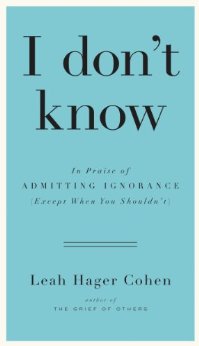Guest blogger Ram Meyyappan explains how severe-OCD sufferers can receive financial help.
If you suffer from obsessive compulsive disorder (OCD), Social Security Disability (SSD) benefits may be available to you. Before applying, you will want to learn more about the application, review, and qualification processes with the Social Security Administration (SSA). The following tips will help you better understand the programs available and the process of applying.
Tip #1: Understand How to Medically Qualify for Benefits for OCD
The SSA reviews OCD claims under the listing for anxiety-related disorders in the Blue Book, which is a manual of disabling conditions and the medical evidence needed to qualify for benefits with each of those conditions.
The listing that applies to OCD requires your medical records prove you experience persistent and severe symptoms that include at least one of the following:
- Anxiety
- Irrational fears
- Panic attacks
- Compulsions or obsessions
- Reliving traumatic events
In addition to documenting symptoms matching at least one of those listed above, your medical records must also document that your OCD also causes:
- An inability to function outside your own home without constant assistance or monitoring
OR
- Severe issues that include two of the following:
- Pronounced difficulties in completing everyday activities, including essential activities of daily living
- Functioning socially
- Concentrating, completing tasks, or moving at a reasonable pace
- Recurrent episodes of increased symptoms, even while undergoing treatment
For more information on medically qualifying with OCD, read “OCD and Social Security Disability.”
Tip #2: Learn How to Financially Qualify for Benefits
The SSA also requires you to meet certain financial or technical eligibility requirements to receive SSD benefits through either or both of the disability programs available:
- For Supplemental Security Income (SSI) benefits, you must have very limited income and other financial resources you can draw on.
- For Social Security Disability Insurance (SSDI), you must have worked and earned work credits by paying Social Security taxes, making $1,070 per month or less due to OCD. This is what the SSA considers the threshold for substantial gainful activity (SGA).
You can read more about SSDI and SSI in “Benefits for People With Disabilities.”
Tip #3: Fill Out the Application Completely
To be approved for disability benefits, you must completely fill out the application and ensure the information is accurate and matches your medical records. It is good to have another individual, such as a friend, family member or Social Security advocate or attorney, review your application prior to filing. They may see missing details or contradictory statements that you have overlooked.
Missing or incomplete information in your application will cause delays in the review of your claim. These kinds of errors can also result in your being found ineligible for benefits. For this reason, providing thorough documentation and accurate information on the SSA’s forms is crucial.
Tip #4: Appeal If Your Claim Is Denied
If your claim for SSD benefits is denied, you can file an appeal. The first appeal is typically a request for a reconsideration review of your application. This must be filed within 60 days of that date of the denial notice you receive in the mail.
If you are denied a second time, you will need to request an appeal hearing before an administrative law judge to continue trying to get disability benefits. That request for appeal must also be filed within 60 days of the denial notice you receive.
Ram Meyyappan writes for the Social Security Disability Help blog.



